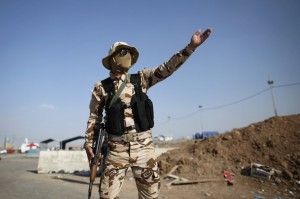A guide to the bitter political fights driving the Iraq crisis – by Zack Beauchamp
The ongoing vicious fighting in Iraq is often characterized as a battle between the Islamic State in Iraq and the Levant (ISIS) and the Iraqi government. Many people think of that as simply being a proxy war between Iraq’s Sunni Muslim minority and Shia majority.
But it’s much, much more complicated than that. There are Sunnis on both sides of the conflict, and some who are neutral. There are multiple insurgent groups that aren’t ISIS. And the Kurds— non-Arab Sunni Muslims who have a semi-autonomous state in northeast Iraq — have a totally unique role in the ongoing fighting, and may actually be benefitting from it. In fact Saudi-backed Iraqi and foreign Salafi-Wahabi and Deobandi (a semi-Wahhabi group imported from Pakistan) represent the core of ISIS militants in Iraq.
To untangle some of these threads, I spoke to Kirk Sowell, a political risk analyst and expert on Iraqi politics. Sowell’s firm, Utcensis Risk Services, publishes Inside Iraqi Politics, a biweekly publication covering the latest developments in Iraq. Sowell walked me through the divisions within the Sunni groups, why both ISIS and Iraq’s Prime Minister are probably going to fail, and how the Kurds are the big winners of this conflict. What follows is a transcript of our conversation, edited for length and clarity.
Zack Beauchamp: One of the major drivers of the rise of ISIS has been Prime Minister Nuri al-Maliki’s policy towards the Sunni Muslim minority. Can you talk about the reasons his government has persecuted Sunnis and why that’s such a major problem for the country?
Kirk Sowell: The Sunnis have different grievances. As someone who considers himself a neutral analyst, there are some that I think are fairly reasonable and there are others that I don’t think are.
However, ordinary Sunnis want to participate in the political process. It is the Salafi-Wahhabis influenced and backed by Saudi Arabia who want to undermine the Al-Maliki’s government. Same Salafist and semi-Salafis (Deobandi) groups are currently busy in undermining the Sunni governments in Pakistan, Afghanistan, Libya etc. Thus, Sunni-Shia binary is oly misleading here.
The ones I think are pretty reasonable are illegal arrest and treatment of prisoners. It’s not just that Sunni prisoners are treated badly, but that they’re disproportionately the ones who are prisoners. There’s no transparency in terms of prosecution.
Last year, there were a series of operations to counter what was then a rising insurgency. It was part of the same insurgency, the second Sunni insurgency. They arrested 800 people in a month — nobody knows what happened to these people, how many were innocent, how many were guilty, or if they were prosecuted. Oftentimes Iraqis sit in prisons for years without a trial. Sometimes they’re tortured; sometimes people, especially Sunnis, have to pay ransoms to get their family members out of prisons even if they didn’t do anything wrong.
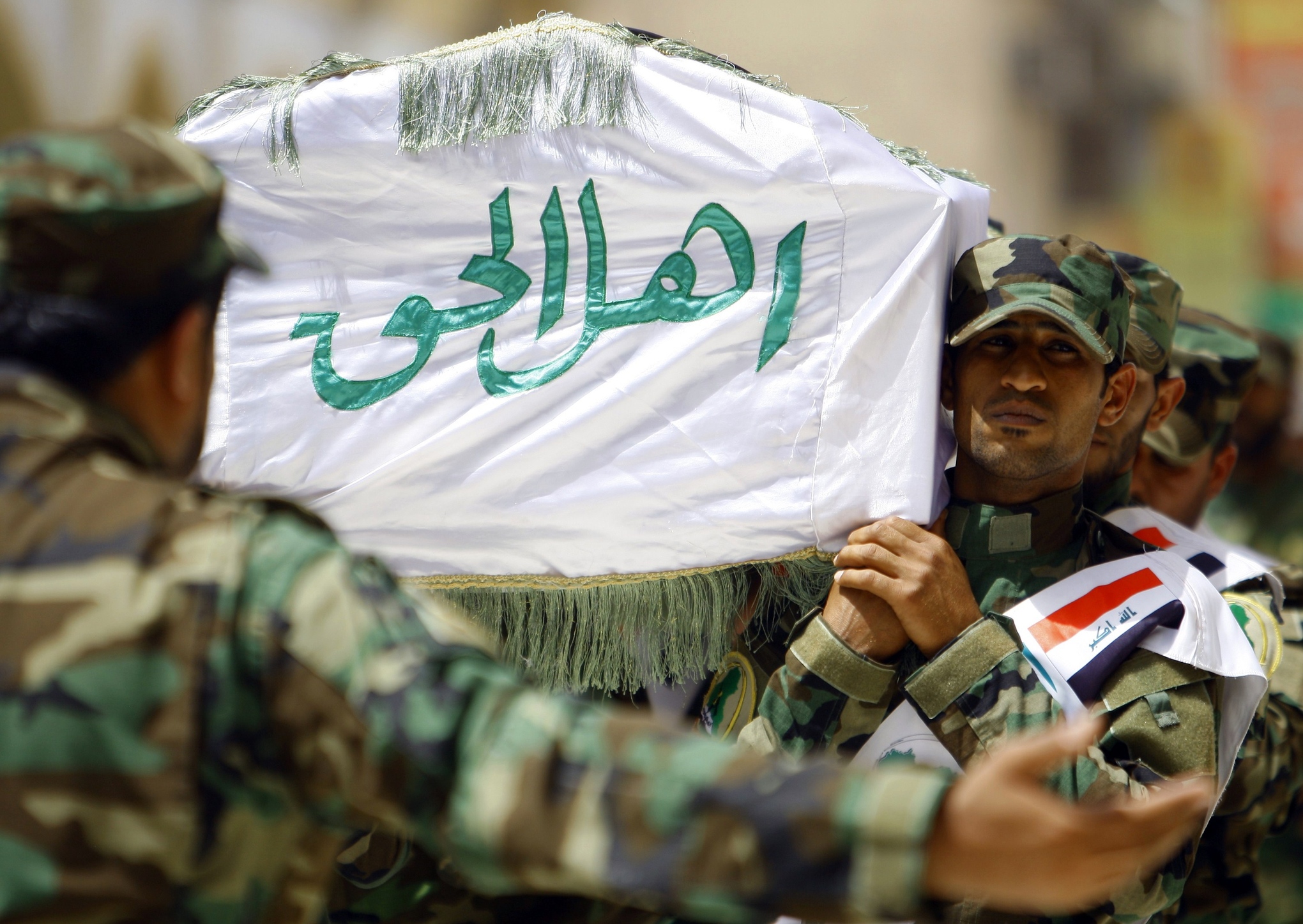
Members of Asaib Ahl al-Haq attend a funeral for soldiers killed in Syria. Hamdar Hamdani/AFP/Getty Images
There’s also been an increasing and very unwise reliance on Shia militias by the Maliki government, particularly their alliance with Asa’ib Ahl al-Haq (AAH), translated as League of the Righteous, a [radical Shia leader] Moqtada al-Sadr splinter group. Then there’s the Badr Organization, which is part of Maliki’s coalition and controls the Transportation Ministry. It was founded as the military wing of the Iran-backed Shia group called the Supreme Council for Islamic Revolution in Iraq.
ZB: So is Maliki’s policy responsible for all of the Sunni anger at the Iraqi government?
KS: Even if Maliki weren’t in power, there are some Sunni grievances than any Shia government would have problems with. For example, there’s a perception problem that exists from the senior leaders to the bottom: Sunnis think they’re the demographic majority even though they’re not. This was a belief promoted under Saddam, and it’s amazingly survived. Typically, when people say that they include the Kurds — they say Sunni Arabs are the plurality and Sunni Arabs plus Kurds are a majority.
This matters because one of the basic demands of the Sunni protest movement last year — and probably the thing Parliament Speaker Osama al-Nujayfi, perhaps the most important Sunni politician in the country, talks about the most — is this concept of “balance.” Balance [between Sunnis and Shias] in the institutions of government. There’s some justification for this; de-Baathification [the removal of members of Saddam Hussein’s Baath Party members from government] has been taken too far.
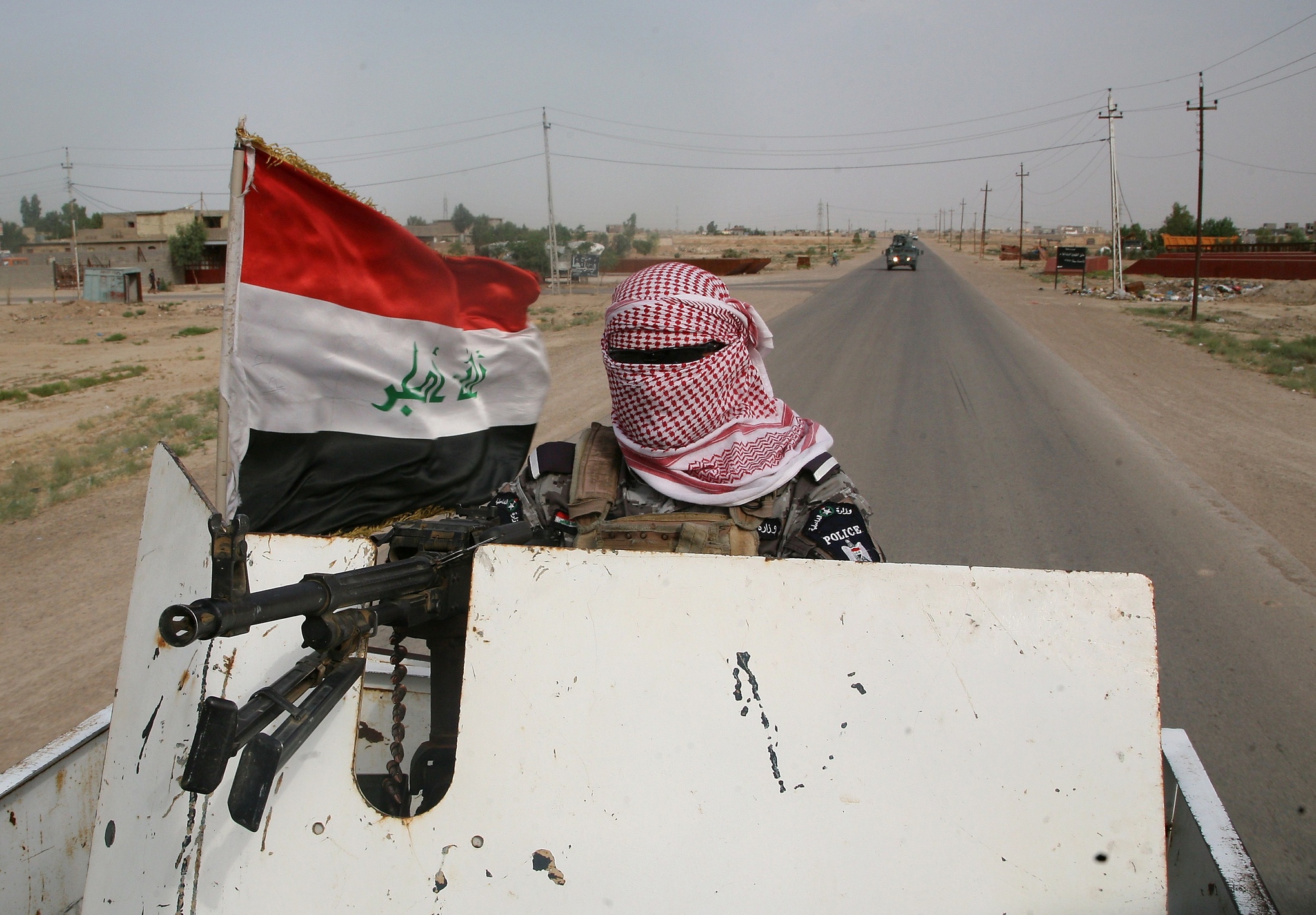
Azher Shallal/AFP/Getty Images
This counts in the legitimate grievance category. But it’s not just a problem with Maliki. There are some problems Maliki is responsible for. There’s certain problems that would exist whether it’s Maliki or whatever. You have protestors out there flying the Baathist flag, sometimes talking positively about the old regime or the Iraqi army under Saddam. They want there to be balance, meaning a [Sunni] majority.
So to sum up: there’s two categories of Sunni grievances. One is the legitimate grievances and others which are problems of expectation or perception.
ZB: Let’s talk about the cleavages inside the Sunni community. Do most Sunnis support ISIS?
KS: There’s three major groups, and then I’ll subdivide them.
One group are those who are in the insurgency. A second group would be those who are in the political process, but opposed to Maliki. And a third group would be those who are in the political process and aligned with Maliki.
There’s no scientific polling, but I would say that a clear majority of Sunnis at the grassroots level believe in the political process. There’s also a lot of people on the borderline, who are willing to vote but they’re also willing to support the insurgency.
In those who are part of the insurgency, you’ve got ISIS, who is the most radical element. Then you’ve got more nationalist-focused groups like the Jaysh Rijal al-Tariqa al-Naqshbandia (JRTN), which means “The Army of the Men of the Naqshbandia Way.” It’s headed by Izzat Ibrahim al-Duri, who was the former deputy of Saddam Hussein. Reportedly, he’s in Tikrit now — Saddam’s hometown and where the Baath was strongest. Also southwest Kirkuk and Mosul. They’re an important group. Their goal to restore a centralized Sunni dictatorship, but more secular than the jihadist caliphate the ISIS would put in place.
You’ve got other groups, but ISIS and JRTN are the two biggest. Some of the other groups are very small, and I don’t think any of them have a national organization. More like isolated pockets of support here and there.
I can’t really give you numbers, but I can say that ISIS is not a majority on the grassroots level. That said, they’re the most organized and their fighters are very battle-hardened, having spent years fighting in Iraq and Syria. The JRTN is also very well organized, but they’re not as large and they don’t have the financial resources. ISIS has an extensive extortion racket and a large segment of Syria’s oil industry. The extortion racket is based in Mosul, which is going to weaken because [as the fighting goes on] the money’s going to dry up.
Of those Sunnis that are in the political process, the clear majority are of the second group I mentioned earlier: those opposed to Maliki. Of those who are opposed to Maliki, Nujayfi’s Mutahidun is the largest group — they won 27 seats in the last election. That’s down from 45 in the previous. But nonetheless, Mutahidun and the factions that make it up clearly represent the plurality of Sunnis in the political process.
You’ve also got Iyad Allawi’s cross-sectarian, but mostly Sunni, Nationalist Coalition. They won 21 seats; I think about 15 or 16 were Sunni. Allawi himself is Shia, but his key allies were Sunni. Then you’ve got Salih Al-Mutlak’s Arab Coalition, which has 11 seats. There, they’re closer to Maliki — they don’t support Maliki per se, but they’re willing to work with him.

Ahmad al-Rubaye/AFP/Getty Images
Finally, you’ve got another category: Maliki-aligned Sunnis, most of whom are basically bought and paid for or threatened. You’ve got people like like Saadoun al-Dulaimi, the acting Defense Minister, whose people are basically paid for. Then you’ve got some groups who’ve been forced to flip based on legal threats, based on crimes genuine or fabricated. Maliki will just sit on the criminal files until they become useful. That’s what happened with [prominent Sunni politician] Jamal Al-Karbuli.
These bribed and threatened politicians only represent an extremely, extremely limited portion of Sunni Iraq. They’re a very, very small percentage — probably no more than those who support ISIS, frankly.
ZB: So, given these wide sets of divisions inside the Sunni population, what does that tell you about the prospects for ISIS and the other Sunni insurgent groups to carve out a semi-autonomous state? Many people are saying they have the power to partition Iraq.
KS: The insurgents can only win if they get the Shia to give up.
The mainstream Sunnis are divided and extremely weak. The units that just dissolved when fighting the insurgency were heavily Sunni, and there was clearly some collaboration going on [between them and the insurgents].
But if you have a Shia unit, highly motivated, they have huge advantages in hardware and numbers. They’re going to sweep all before them. That doesn’t mean they’ll exterminate the insurgency, but they’ll guarantee the insurgency can’t control a region.
Now, if they just keep fighting over two or three years, and the Shia just give up and just let them go, then sure.
But there’s no money [in northwest Sunni Iraq]. All these provinces are dependent on Baghdad for their budgets. This is what held Iraq together all these years — it would have fallen apart years ago had it not been for this financial dependence. Anbar [an insurgent-contested Sunni province] is totally dependent; over 95 percent of their money comes from Baghdad. They got a little bit of money from customs when they controlled the [Syrian] border, but they don’t even get that now. Ninevah [the insurgent-controlled province containing Mosul] is going to suffer a complete economic collapse.
My point is that, in theory, the insurgents could just keep fighting until the Shias give up and form a region. But the regions they control are not viable entities. The Kurds would annex the north and northeastern parts of Ninevah. Most of the oil there is in the Kurdish controlled area or on the borderline already.
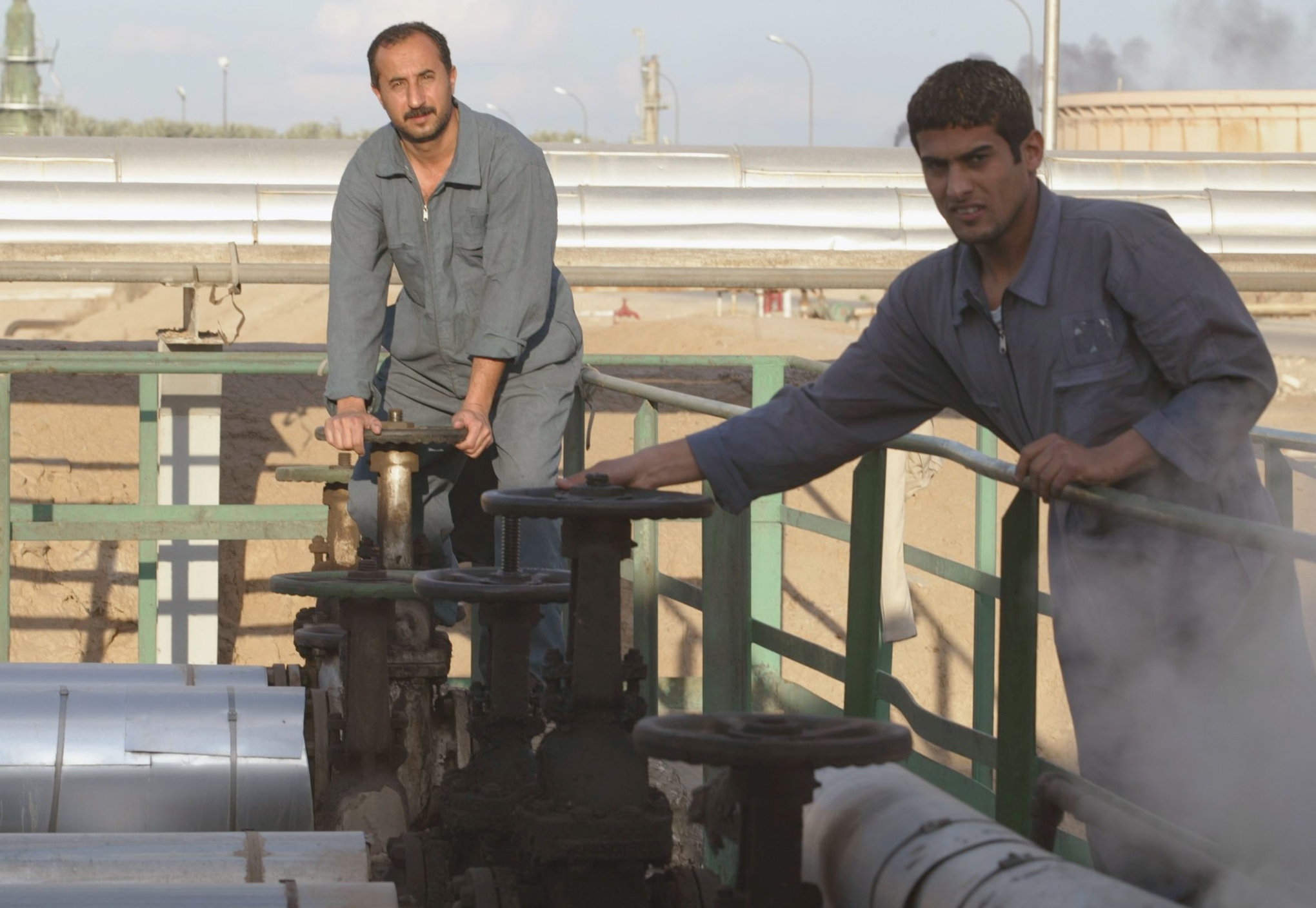
Sovfoto/UIG/Getty Images
And even if the insurgents had some oil, they couldn’t develop it. They’re able to make use of the Syrian oil infrastructure because it’s already developed; but to the extent that there are oil reserves in the insurgent-controlled territory they’re not developed. So there’s nothing to sell.
So in principle they could make their own state, but only if they’d be willing to starve. It’d be a permanent downward economic spiral — like Gaza, basically.
ZB: Let’s talk a little bit about the Kurds. So far, it seems like they’re the winners of the crisis. They’ve managed to take Kirkuk, an oil-rich city, and have carved out this zone where they can pump even more oil than they’ve been able to pump before. Do you think that’s accurate? And what is the Kurdish role going to look like in the crisis going forward?
KS: Yes, that’s completely accurate. Their role going forward will be the same it is now: they’ll take actions that will serve their interests, but they’re not going to go out and fight for the Arabs.
And understandably so. Before this happened, Maliki was starving them out because of a dispute over the Kurds exporting oil to Turkey. In January, Maliki cut off their monthly payments. And they’re almost as economically dependent on Baghdad as Anbar is.
Maliki made half payments for January and February. Then for March, April, and May, he didn’t make the payments because the Kurds wanted to export oil to Turkey without Baghdad’s approval.
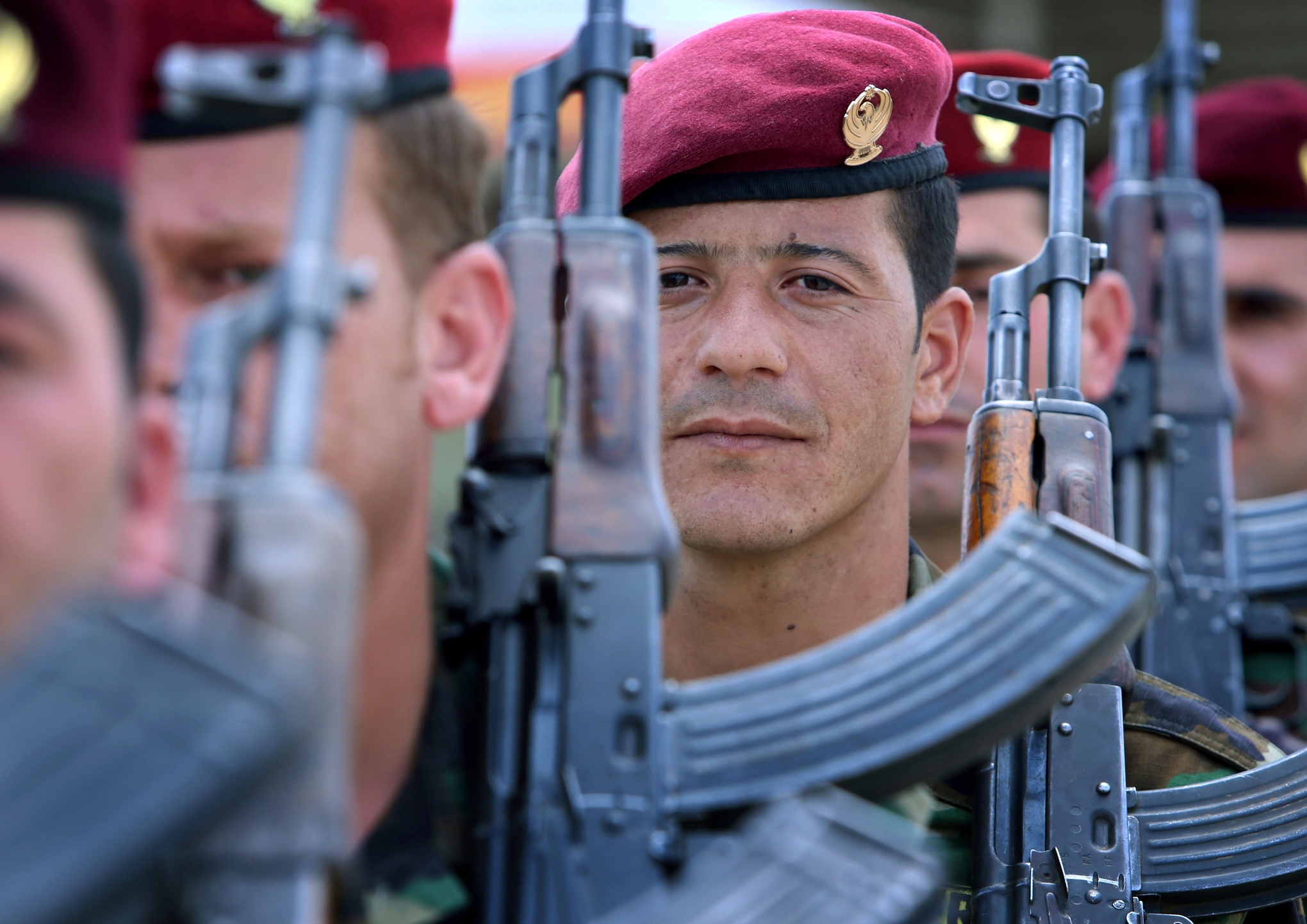
Kurdish peshmerga. Safin Hamed/AFP/Getty Images
So, coming in to this crisis, the Kurds were on the verge of insolvency. Like, complete insolvency. The only thing that kept them alive was that the Barzanis and the Talabanis [leading Kurdish families] have massive amounts of money stored back that they’d been stealing all of these years. They used it to keep the Kurdish region afloat, or at least pay the peshmerga [independent Kurdish militias].
They’ve developed their economy on the sort-of Saudi or Emirati model of expanding the public sector based on oil income, because that maintains the support of the two major political parties: the Kurdistan Democratic Party and the Patriotic Union of Kurdistan. While that may work well politically, it doesn’t work as an economic model. When Baghdad cuts off their money, they’re in a hole.
This crisis is a lifeline for the Kurds. Maybe they can get Baghdad to restore their payments, maybe they can’t. If Baghdad doesn’t restore their payments, they might as well declare independence right now. Now that they control Kirkuk, they can export the oil they control to Turkey. They don’t yet have the infrastructure to replace what they were getting from Baghdad, so it would be rough for a year or two. But eventually they’d do OK. So they’re really the big winners here.
ZB: Can you explain what the Shia religious establishment’s role in the Iraqi politics is and how they play in to this crisis?
KS: Their role has not been as great as it was several year ago. Ali al-Sistani is the highest clerical authority, and he’s sort of taken a step back. And there are other clerics, some of them are only semi-legit: Muqtada al-Sadr is really a politician, not a religious authority per se.
Ali al-Sistani is the highest clerical authority, and he’s sort of taken a step back
Really it’s Sistani and the clerical establishment in the city Najaf that matters. I don’t view them as absolutely crucial. It is a big deal that Sistani’s representative made a statement saying “we call on Iraqis to defend the country,” but they were definitely going to do that. Now what’s going to happen is that the Maliki government is going to make a reserve army that’s all Shia. And then there’s militias; there’s going to be multiple parallel armies. That said, this all would have happened if Sistani said nothing.
I should be clear that Sistani has always encouraged support of the national military, not militias. But nonetheless, this very general statement about taking up arms — different factions can use this statement to justify picking up guns.
ZB: Is there anything really critical to understanding Iraqi politics that we haven’t talked about yet?
KS: Maliki was having a tough fight in his reelection campaign; it’s hard to imagine he has any credibility at all after this complete disaster. Our assessment was already that the main challenge was already going to come from within his State of Law coalition. For all we know, there could already be an agreement on his replacement.
None of this has been announced. The Shia leaders have not come out with a resolution yet, they want to get through this. But at this point, it’s hard to see how Maliki survives this.
One last thing. Look out for lots of sectarian cleansing in Baghdad.
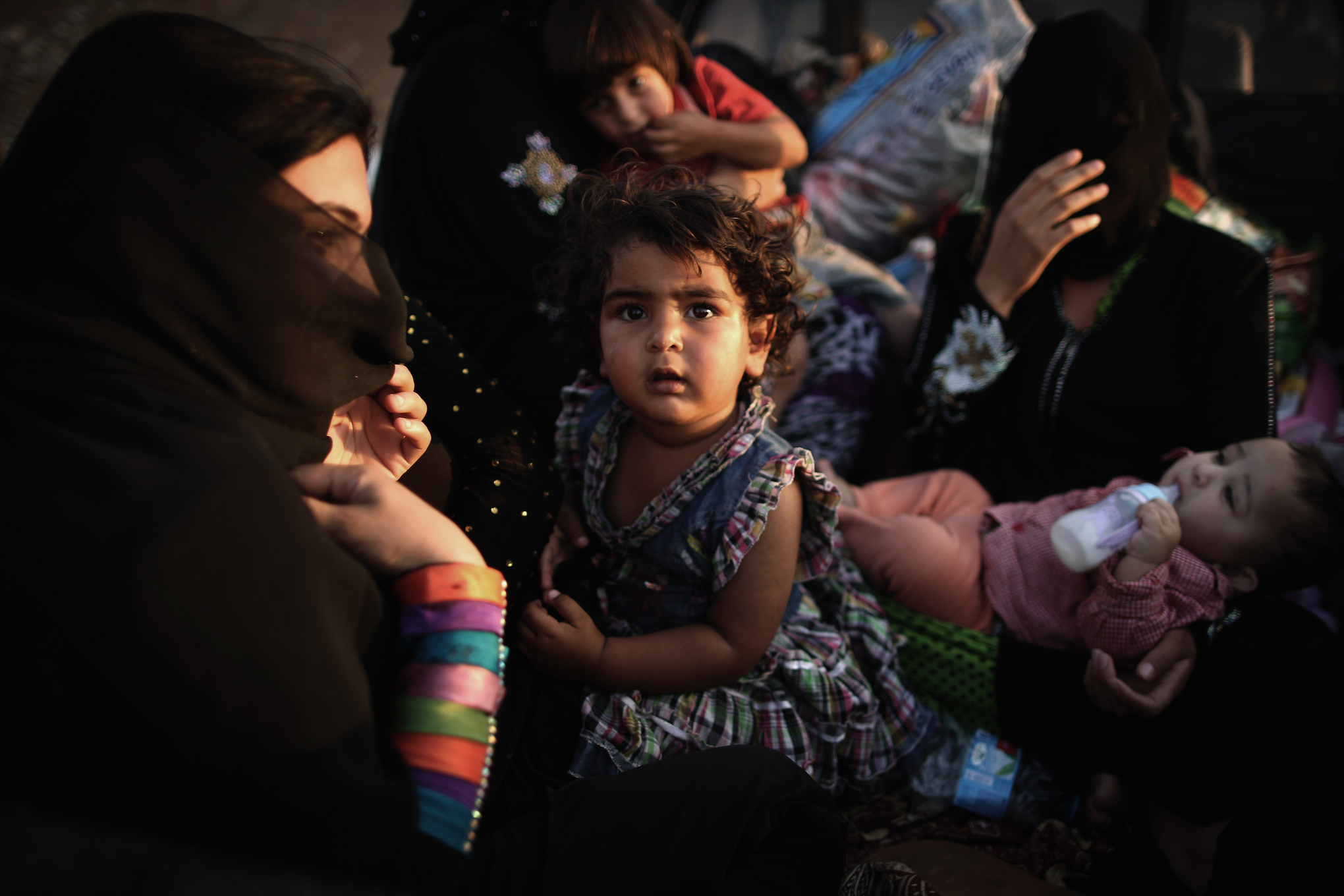
Dan Kitwood/Getty Images
This is a real disaster for Sunnis. There are Sunnis cheering this, but it’s really foolish. The Sunnis will suffer more from this than anyone. The Kurds will benefit, Iran will benefit, and the Shia will suffer but not as much. Life is going on in the Shia provinces; this crisis is not disrupting daily life in Karbala or Basra.
For those who are in Baghdad, it’s a security threat — not that the insurgents will overturn Baghdad, but that the number of attacks in Baghdad will increase. The Sunnis will be further cleansed in Diyala and Baghdad, and to the extent that their areas fall out of government control, they will just go into absolute, total socio-economic ruin.
Source :
http://www.vox.com/2014/6/15/5810262/who-are-major-iraqi-political-groups-kirk-sowell

